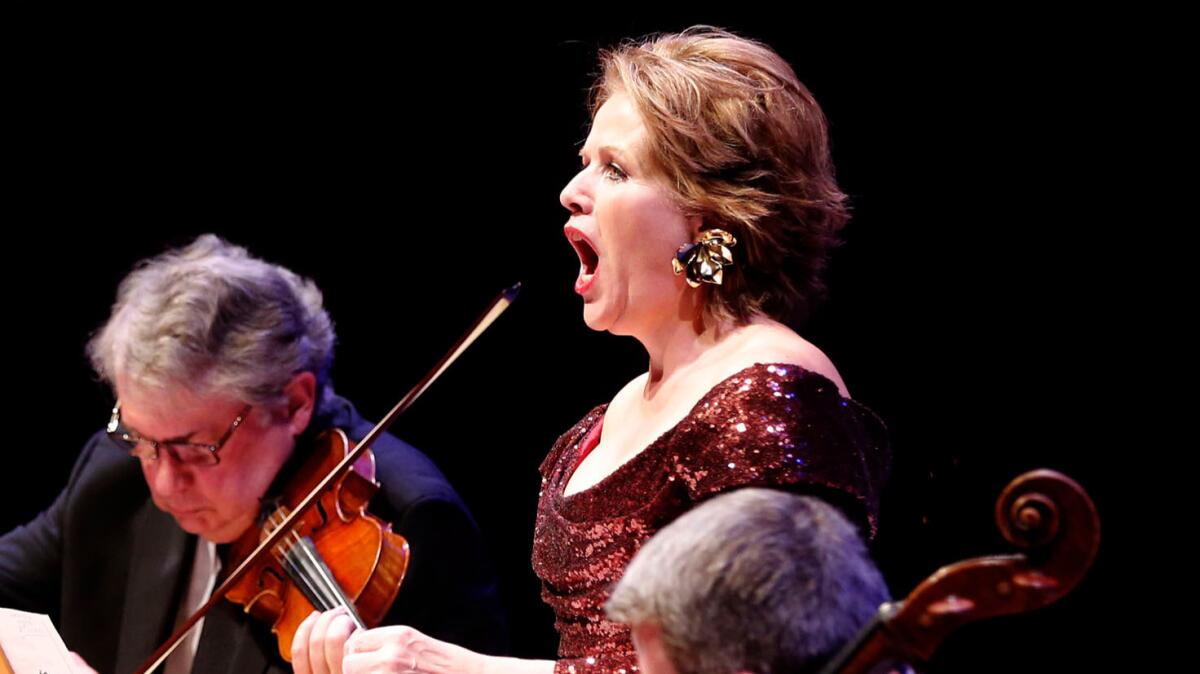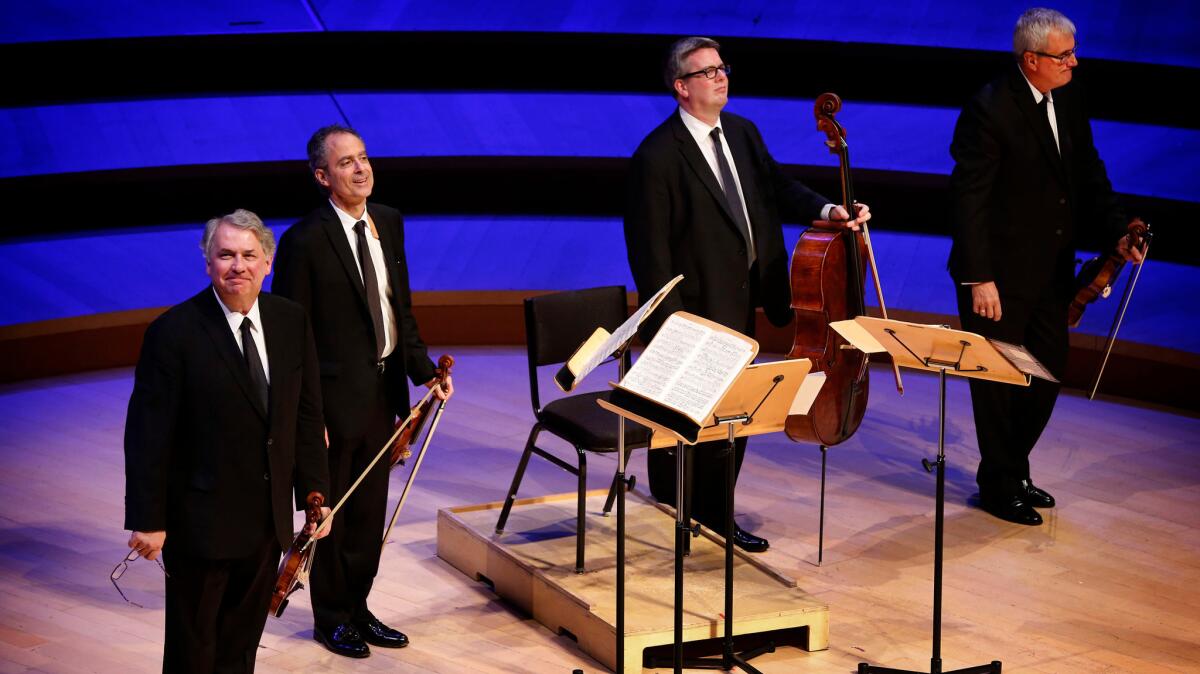Review: Renée Fleming and Emerson String Quartet bring some obscure music to light at Disney Hall

- Share via
Far from contemplating retirement, Renée Fleming is busy pursuing esoteric ideas away from the opera stage. Audiences can only hope there will be more to come like the unusual program that the 57-year-old soprano and the long-running (40 years and counting) Emerson String Quartet have taken on tour.
This would be an immersion into post-Mahlerian Viennese expressionism between the world wars, with familiar and unfamiliar composer names popping up. By the time the tour reached Walt Disney Concert Hall on Tuesday night, a lushly recorded Decca CD of this material by Fleming and the Emersons (with, of course, Gustav Klimt cover art) had already been out for a year, so there were no surprises.
SIGN UP for the free Essential Arts & Culture newsletter »
As a kind of control sample comparison to where German music had been before the wars, the Emersons first played some Brahms. His String Quartet No. 2 sounded tentative and a bit frayed at first, as if the foursome’s attention had not yet slipped into focus. Only in the finale did the performance coalesce and take hold.
Fleming then helpfully introduced “Sonnets by Elizabeth Barrett Browning,” a song cycle for soprano and string quartet by Egon Wellesz (1885-1974), who until recently had not been prominent in the revival of composers targeted by the Nazis. Wellesz got out of Vienna in time; he was in Amsterdam when Hitler annexed Austria. He eventually found academic security at Oxford, but his music, which includes nine symphonies and six operas, descended into an obscurity from which it has yet to fully emerge.
Set to Browning texts in Rainer Maria Rilke’s German translations, the sonnets are loaded with turn-of-the-century Viennese atmosphere, retaining their tonal footing yet straying frequently into morbid Schoenberg country before concluding on a lyrical, nearly sweet note. The Emersons were fully engaged with the work, and Fleming sailed over the quartet with her luxuriously plush timbre intact.

Ultimately, though, the Wellesz piece didn’t strike me as first-rate music, and once Alban Berg’s sparkling, beautiful “Lyric Suite” got underway, I was sure of it. More often than not, great music makes itself understood immediately, and this piece caught on even before the underlying subtext — a nearly play-by-play account of an affair that Berg had with a married woman — became known half a century after its 1920s premiere.
One of the revelations was that the sixth movement of “Lyric Suite” had a heart-rending “secret text” by Baudelaire superimposed over the score. It is rarely performed with a singer — the vocal line alternately follows the viola and the violin parts, sometimes going off on its own. Fleming, in full operatic volume, and the Emersons did so with a depth charge of emotion. On their recording, the movement appears twice, with and without the voice, and it’s equally effective both ways.
Afterward, Fleming and the Emersons added a gentle song “Komm, Süsser Tod” by Erich Zeisl, a Jewish Viennese refugee who settled in Los Angeles and had an unsatisfying career as a film composer before dying of heart failure at 53. This was on the CD as well, and it came in handy to score some local points.
Follow The Times’ arts team @culturemonster.
ALSO
Joshua Bell joins Dudamel and the L.A. Phil for a lively program
Esa-Pekka Salonen and the Philharmonia play larger than life on Southern California tour
More to Read
The biggest entertainment stories
Get our big stories about Hollywood, film, television, music, arts, culture and more right in your inbox as soon as they publish.
You may occasionally receive promotional content from the Los Angeles Times.










